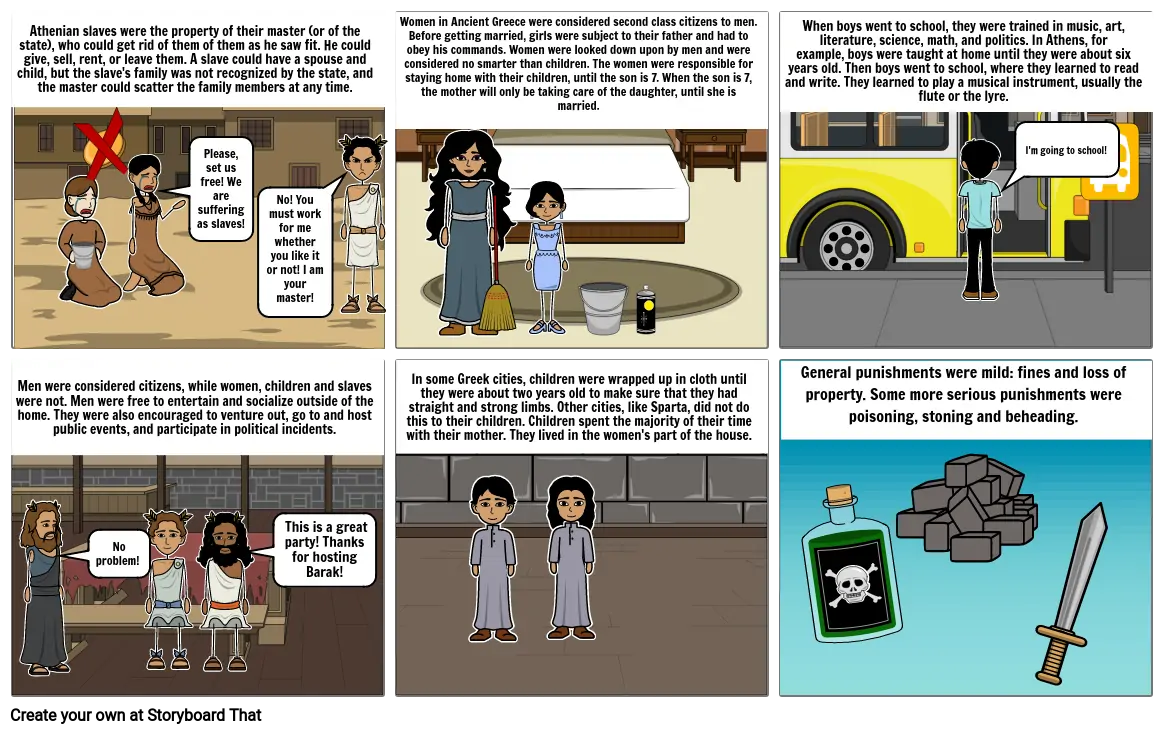Daily Life in Ancient Greece

Siužetinės Linijos Tekstas
- Athenian slaves were the property of their master (or of the state), who could get rid of them of them as he saw fit. He could give, sell, rent, or leave them. A slave could have a spouse and child, but the slave's family was not recognized by the state, and the master could scatter the family members at any time.
- Please, set us free! We are suffering as slaves!
- No! You must work for me whether you like it or not! I am your master!
- Women in Ancient Greece were considered second class citizens to men. Before getting married, girls were subject to their father and had to obey his commands. Women were looked down upon by men and were considered no smarter than children. The women were responsible for staying home with their children, until the son is 7. When the son is 7, the mother will only be taking care of the daughter, until she is married.
- When boys went to school, they were trained in music, art, literature, science, math, and politics. In Athens, for example, boys were taught at home until they were about six years old. Then boys went to school, where they learned to read and write. They learned to play a musical instrument, usually the flute or the lyre.
- I'm going to school!
- Men were considered citizens, while women, children and slaves were not. Men were free to entertain and socialize outside of the home. They were also encouraged to venture out, go to and host public events, and participate in political incidents.
- No problem!
- This is a great party! Thanks for hosting Barak!
- In some Greek cities, children were wrapped up in cloth until they were about two years old to make sure that they had straight and strong limbs. Other cities, like Sparta, did not do this to their children. Children spent the majority of their time with their mother. They lived in the women's part of the house.
- General punishments were mild: fines and loss of property. Some more serious punishments were poisoning, stoning and beheading.
Sukurta daugiau nei 30 milijonų siužetinių lentelių

